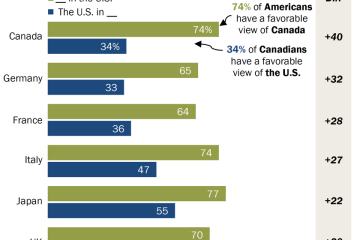Understanding Nigeria’s Frustration with Canada

Introduction
The recent tension between Nigeria and Canada has captured international attention, stemming from a series of events that have strayed from traditional diplomatic ties. This issue not only highlights the complexities of international relations but also has significant implications for both countries involved. Understanding the roots of Nigeria’s anger toward Canada is essential for grasping the ongoing dynamics of global diplomacy.
Background of the Tension
In early October 2023, tensions escalated between the Canadian and Nigerian governments after Canada issued a travel advisory urging its citizens to avoid Nigeria due to security concerns. This advisory followed a series of violent incidents in Nigeria, particularly in regions plagued by insurgency and banditry. The Nigerian government expressed strong discontent, asserting that the travel advisory exaggerated the situation and could harm Nigeria’s image and economic prospects.
Political Ramifications
Alongside the travel advisory, the Nigerian government criticized Canada for perceived interference in its domestic affairs. This came after comments made by Canadian officials regarding Nigeria’s electoral process, which has been marred by allegations of corruption and violence. Nigerian leaders claimed that such comments undermine the country’s sovereignty and peaceful efforts to improve its electoral system.
Diplomatic Responses
In response to the growing discontent, Nigeria summoned its ambassador to Canada for consultations, signaling a serious diplomatic protest. The Nigerian Minister of Foreign Affairs stated that the advisory was “unfounded and is an affront to Nigeria.” Canadian officials have since attempted to engage in dialogue with Nigerian counterparts to address the concerns, but the damage to bilateral relations has already begun to manifest in various sectors, including trade and security cooperation.
Social Media Impact
The issue has gained traction on social media, with many Nigerians expressing their frustration towards Canada, often calling on the government to take further action against perceived slights. Hashtags related to this topic have trended across platforms, revealing a united front among Nigerians who feel that Canada’s actions undermine their nation’s progress and sovereignty.
Conclusion
The ongoing situation between Nigeria and Canada serves as a reminder of the fragile nature of international relations, where actions and words can quickly escalate tensions. The fallout from this incident highlights the need for respectful dialogue and mutual understanding in diplomatic dealings. As both countries navigate this diplomatic quagmire, it remains crucial for citizens and leaders to seek an informed perspective on the implications of these tensions for their futures.






